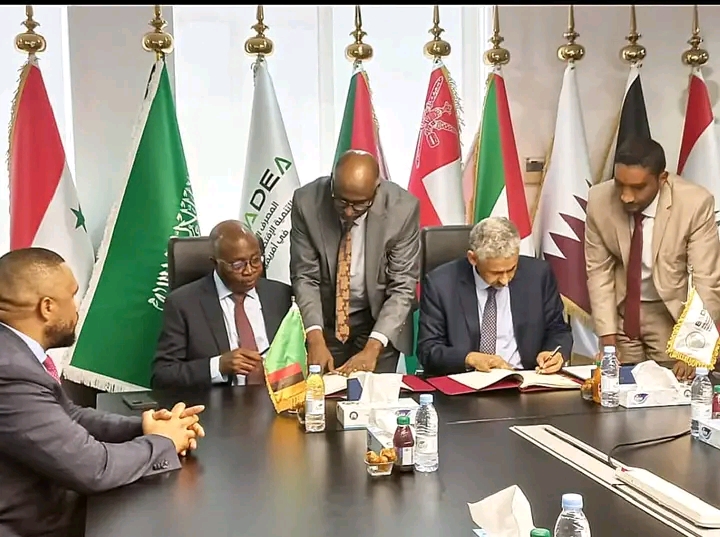By John Chola
Zambia and the Arab Bank for Economic Development in Africa (BADEA) have signed a US$ 50 million cooperation agreement to finance the construction of the Kalabo-Sikongo-Angola Road Project in Zambia’s Western Province.
The agreement was signed by Zambia’s Minister of Finance and National Planning, Dr. Situmbeko Musokotwane, and BADEA President, Dr. Sidi Ould Tah, during a ceremony in Riyadh, Saudi Arabia.
The road project is expected to bolster Zambia’s infrastructure, contributing to industrial development, innovation, and regional integration, with a focus on improving trade and transportation links between Zambia and Angola.
The Kalabo-Sikongo-Angola road will facilitate enhanced cross-border trade, create job opportunities, and raise the standard of living for people in the region.
“The improved road network will unlock economic opportunities, particularly by connecting remote areas of Western Province to the rest of the country.
This will be vital, especially during the rainy season when these areas are usually cut off,” said Dr. Musokotwane.
He further emphasised that the project aligns with both the United Nations Sustainable Development Goals (SDGs) and Africa’s Agenda 2063, highlighting its potential to promote long-term prosperity and poverty reduction.
In addition to the road construction agreement, Zambia and BADEA signed a US$ 500,000 capacity-building agreement aimed at training public officials in key sectors, including finance, trade, and energy development.
The initiative is expected to improve the efficiency of public sector management and support Zambia’s overall development strategy.
Dr. Sidi Ould Tah described the Kalabo-Sikongo-Angola Road Project as a “cornerstone” of Zambia’s development strategy.
He underscored the importance of infrastructure in driving economic growth and regional integration, adding, “By opening up access to Angolan ports, this road will facilitate greater trade, accelerate economic growth, and strengthen regional integration.”
BADEA’s support to Zambia dates back to 1976, with its financing assistance amounting to US$186.085 million, covering 22 projects across various sectors.
This includes projects in infrastructure, agriculture, energy, and education, with the most recent being the ongoing construction of the Cancer Treatment Center in Lusaka’s Chalala area.
Dr. Musokotwane also used the occasion to invite Saudi Arabian and Middle Eastern investors to explore opportunities in Zambia’s energy, mining, and agriculture sectors, stressing the country’s commitment to creating favourable conditions for investment.
The two officials noted that partnership between Zambia and BADEA continues to grow, as both parties remain committed to sustainable development, poverty alleviation, and regional integration.








